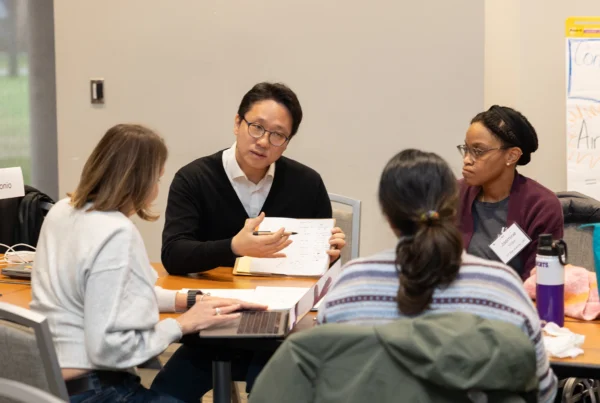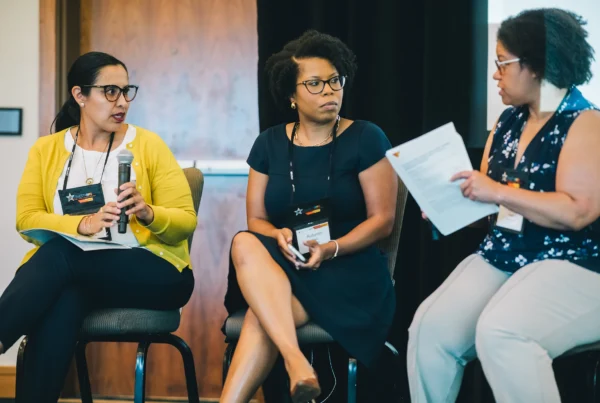The Urban Education Institute at the University of Texas at San Antonio (UEI-UTSA) has been engaged in addressing contemporary educational challenges in San Antonio and across Texas – particularly those related to limited access to high school counseling and socio-emotional learning services.
Integrating a Social-Emotional Wellness Coach in a School Setting
As demands placed upon K-12 educators grow, there is a critical need for intentional support to address students’ social and emotional learning (SEL) needs. Although extensive research highlights the advantages of SEL programming—improved academic outcomes and reduced behavioral problems—the specific needs and crucial roles educators play in successful SEL implementation have not been well studied.
UEI joined forces with three non-profits – H.E. Butt Foundation, Communities in Schools of San Antonio, and Clarity Child Guidance Center, to evaluate and offer recommendations for improving an SEL intervention program (“Basecampus”) that provides dedicated Social-Emotional Wellness Coaches, digital resources, and training opportunities directly in schools, with the goal of empowering educators and other non-mental health professionals to implement youth mental health prevention strategies.
Findings revealed that Basecampus led to positive developments in teachers’ engagement with wellness resources, enhanced perceptions of their own well-being, and increased confidence in identifying and responding to students’ mental health challenges. Participation also significantly reduced staff stress and elevated their ability to intervene early with students experiencing difficulties. Our work revealed that sustainable success hinges on district-level commitment to teachers’ and students’ social and mental health support.
Using AI to Support the College Application Process
High student-to-counselor ratio in Texas – which was 389:1 during the 2022–2023 academic year – significantly limits school counselors’ abilities to address students’ academic, emotional, and social needs. In response to these challenges, the Texas Higher Education Coordinating Board initiated the Virtual Advising Project, known as ADVi, an artificial intelligence-powered chatbot system designed to provide scalable and efficient support to students navigating the college application process.
ADVi manages routine queries and offers general guidance, allowing school counselors to concentrate their efforts on more complex cases and personalized interactions. And, if a student’s inquiry surpasses ADVi’s automated capabilities, the chatbot seamlessly connects them with a live professional college advisor. This hybrid approach offers consistent, immediate support. Since its launch, ADVi has supported over one million Texan students seeking higher education opportunities.
UEI partnered with THECB and conducted an evaluation of students’ utilization of ADVi. Findings indicate that racially and ethnically minoritized students, as well as those from low-income households, disproportionately utilize and benefit from ADVi’s support, suggesting its particular effectiveness for students traditionally underrepresented in higher education. Additionally, students with disabilities—including those with autism spectrum disorders, emotional disabilities, and speech and language impairments—showed heightened engagement with the chatbot, underscoring ADVi’s role as a valuable alternative for students who might otherwise feel uncomfortable interacting directly with school counselors.
For more information on these studies, contact Dr. Han Bum Lee.






